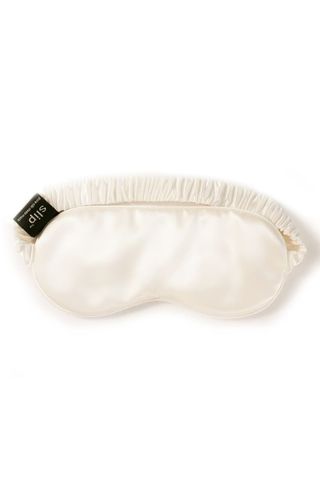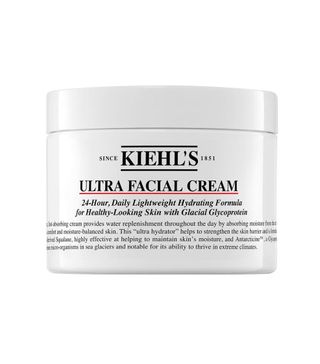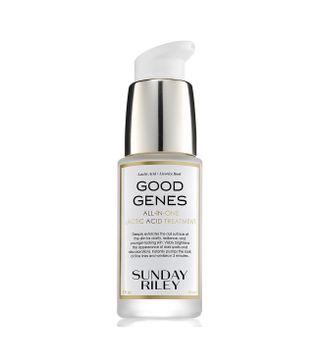12 Things That Happen to Your Body When You Stop Drinking Caffeine

Caffeine culture is strong. Next to water, tea is the most-consumed beverage, according to National Geographic. And energy drinks are still popular among teens and young adults. Whatever your preference, millions of people rely on caffeine to wake up, keep focused, or stay energized. But the world's most popular stimulant comes with its fair share of annoyances—the discomfort caused after excessive caffeine consumption, the feelings of uneasiness without it, and the digestive problems you might have to deal with.

Is that coffee date at 4 p.m. really a good idea? Will forgoing that Monster energy drink turn you into one? If you're keen on quitting caffeine or thinking about making a change, here are 12 benefits that could be coming your way.
1. Less Anxiety

Caffeine stimulates the central nervous system, which can cause an increase in anxiety levels if you indulge in a cup too many. So yes, downing an energy drink can temporarily give you a jolt, but you might not like the residual sweaty palms, heart palpitations, irritability, or jittery, anxiety-induced repercussions that might accompany said jolt.
2. Better Digestion

That same energy—which is actually an increase in the production of stress hormones—puts your body in fight-or-flight mode, which means it's prepping you for action, not digestion. "Your body starts to pump out cortisol in levels similar to when you're going through an acute stress response," explains Cristina Tahoces of Thrive Nutrition Practice. "The result is poor digestion and absorption of vital nutrients and minerals." In addition, as caffeine increases the acidity and amount of gastric secretions in the tummy, it can lead to upset stomach, indigestion, and/or heartburn.
3. Better Dental Health
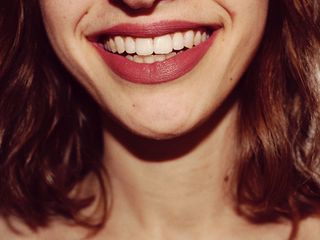
It can be difficult to maintain that bright smile when you're flashing a mouth full of yellow- and brown-stained teeth. Consuming a copious amount of black tea and dark coffee will no doubt put your pearly whites at risk of discoloration. This happens when the presence of tannins (an organic substance found in plants where teas, coffee, chocolate, and wine come from) builds up on tooth enamel. Over time, the pigment from those beverages can become embedded and cause permanent yellowing stains.
According to the American Dental Association, caffeinated coffee and tea can dry out your mouth as well. The solution if you do consume? Drink water and don't add too much sugar or syrup.
4. Better Sleep

Since they're stimulants, coffee and energy drinks are disruptive to your sleep schedule. "If you have caffeine on the regular, it will 100% affect your sleep quality and length," says holistic health practitioner Monica Hershaft, NC, HHP, NRT. "Caffeine overstimulates the adrenals and stresses the thyroid. It puts you in a constant state of alert." If you're topping off too late in the day, this will make it difficult to fall and stay asleep. And not getting enough sleep can wreak havoc on your skin—which brings us to our next point.
5. Better Skin

Too much of that morning or afternoon pick-me-up can lead to frequent bathroom breaks. And that's not fun since hauling your bladder to the loo can be such a drag in the middle of meetings or on road trips. Not only is this inconvenient, but excreting so much fluid will deplete your skin of vital moisture it needs to keep the body hydrated. Caffeine will also impede collagen production that keeps our skin firm and strengthens your bones.
6. Better Absorption of Nutrients
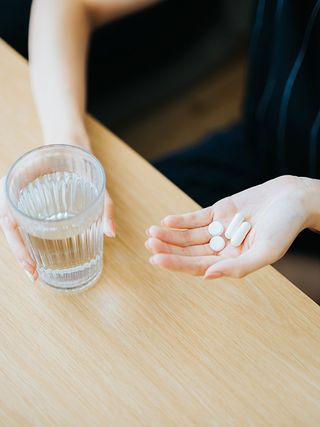
Some studies have shown that when consumed in large amounts, caffeine can interfere with your body's absorption of vitamins and nutrients.
7. Lower Blood Pressure

Caffeine is a vasoconstrictor—an agent that narrows the walls of blood vessels—that could raise blood pressure a few points in some or even make it skyrocket in others. If your blood pressure is creeping up, which can also happen from stress, genetics, and/or the side effects of medication, clinical nutritionist Alyson Roux, MS, CNS, suggests cutting back on caffeine: "Reducing caffeine intake has been found to reduce blood pressure, which decreases the risk of heart disease."
8. Fewer Headaches

While we're on the topic of vasoconstriction, we'd be remiss not to mention perhaps the biggest perk of quitting caffeine: the dreaded headaches! Since caffeine consumption causes blood vessels to narrow, reducing or stopping intake allows the vessels to open back up to normal levels. The only problem is this sudden change in blood flow can cause painful withdrawal headaches that can range from mild to severe. Curb that habit and headaches will subside.
9. Better for the Environment
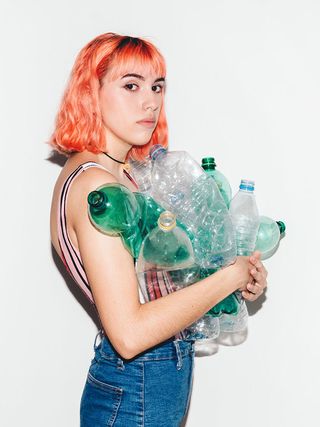
This doesn't have a direct effect on your body, but a healthier environment will be good for us all in the long run. As our appetite for coffee has grown, so has our plastic waste problem. "Caffeine can cost us more than benefit when we create excessive garbage from single-use cups and bottles," says registered dietitian and author Karen Giesbrecht. "A significant proportion of streetscape waste (aka city garbage cans) fill with food and beverage packaging." Coming at a great cost to the environment, our caffeine addiction contributes to the increasingly urgent plastic pollution crisis.
10. Balanced Hormones for Women

One study found that drinking a few cups of coffee could mess with women's estrogen levels and that changes differed according to race. Asian and black women who consumed 200 milligrams of caffeine a day recorded elevated estrogen levels compared to white women who drank the same amount. While the research indicated that different sources of caffeine could differentiate the data, the general consensus alludes that your hormones are likely to stabilize if you abstain or limit caffeine intake.
11. Balanced Brain Chemistry

Habitual consumption of caffeine will alter your brain's chemical makeup, similar to drug dependence. The initial effects of withdrawal are the same: mental fog, fatigue, throbbing headaches, nausea, and/or flu-like symptoms. Caffeine withdrawal is even recognized as a mental disorder. Weaning off the stuff and gradually quitting caffeine will break the cycle of addiction.
12. Financial Benefits
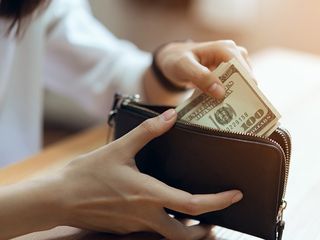
Okay, not another direct correlation to your body, but a little bit more money in your pocket can help your overall well-being. That caffeine fix can really put a damper on your wallet. Sure, spending $4 for cappuccino might not seem pricey, but it can really add up over time. Cutting back on caffeine won't make you rich, but that extra dough in your bank account is tempting enough to give it up.
Next up: 10 Signs You're Going Through a Caffeine Withdrawal
This article was originally published at an earlier date and has been updated.
Disclaimer
This article is provided for informational purposes only and is not intended to be used in the place of advice of your physician or other medical professionals. You should always consult with your doctor or healthcare provider first with any health-related questions.
Jenny Star Lor is a native Angeleno who began her professional career at entertainment publications such as Us Weekly and The Hollywood Reporter before embarking on a life-changing international adventure with her husband to Asia. They found themselves in the densely packed metropolis of Hong Kong among towering skyscrapers, delicious dim sum and cuisine from around the world. There, she realized her true passion lay in the health and wellness space, and she spent time writing for an award-winning media platform focusing on eco-wellness. Some of her favorite topics include nutrition, clean beauty, fitness, sustainability, and zero waste. After a few years living abroad, they returned stateside with a brand-new baby in tow and settled in the Tar Heel State of North Carolina. When not covering wellness trends, she's likely scrapbooking or teaching and training pole dance.
-
 I Live for Yoga and Pilates—These Are the Pieces That Help My Flow
I Live for Yoga and Pilates—These Are the Pieces That Help My FlowTake notes.
By Humaa Hussain
-
 It's Time to Get Our Nutrition in Check for Summer—This App Is Making It Easy
It's Time to Get Our Nutrition in Check for Summer—This App Is Making It EasyThe recipe ideas are endless.
By Who What Wear
-
 If You're Battling With Digestive Issues, This Could Be Why
If You're Battling With Digestive Issues, This Could Be WhyTurns out, you may not have IBS after all.
By Kia Topps
-
 Our Editors Own a Lot of Sneakers, But This Pair Comes in First Place Every Time
Our Editors Own a Lot of Sneakers, But This Pair Comes in First Place Every TimeA major win.
By Aniyah Morinia
-
 I Changed My Mind About Strength Training When I Tried This Workout
I Changed My Mind About Strength Training When I Tried This WorkoutMy confidence is officially on 10.
By Kia Topps
-
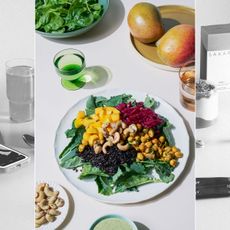 I Only Ate Sakara Life Meals for 30 Days—Here Are 7 Things That Happened
I Only Ate Sakara Life Meals for 30 Days—Here Are 7 Things That HappenedThe brand's 30-Day Fall Reset is finally here.
By Erin Jahns
-
 This Type of Gear Will Take Your Workout to the Next Level
This Type of Gear Will Take Your Workout to the Next LevelBring it on.
By Sarah Yang
-
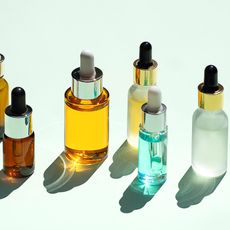 6 Essential Oils That Will Heal Your Painful Sunburns
6 Essential Oils That Will Heal Your Painful SunburnsAll-natural relief ahead.
By Samantha Parsons


